Location
Limerick, Ireland
Description
The philosophy, the aims and objectives
UL Engage, UL K4C Hub: Structures and Remit
The K4C Hub is under the remit of the Office of the Vice President Global & Community Engagement and it is an integral part of the UL Engage initiative at the University of Limerick. It plays an important role in promoting the presence of UL in Limerick city and county, throughout the Midwest region and nationally.
Through our work with the Irish Universities Association/ Campus Engage. UL has played a leading role in promoting civic engagement in Irish higher education and is committed to working in line with the values of Campus Engage.
- Ambitious: for our students and staff, our communities, and our work.
- Accountable: to our organisations, our communities and society.
- Curious: to ask questions, find solutions, and exchange ideas.
- Collaborative: working in partnership for the benefit of all.
- Inclusive: of all people, interests, talents, skills, and abilities.
- Mindful: of people, the environment, resources, and our interdependencies and impact.
- Reflective: to improve our understanding and practice.
- Respectful: of people, place, context, culture, and process. (Campus Engage, 2018: 5)
The re-imagining of university engagement supported by the K4C Hub offers a ‘life cycle approach’ to our existing engaged activities – in schools outreach, university access initiatives, community based learning and engaged research (ABC to PhD!) – recognizing that university investment in one area may ultimately deliver benefits to another, and over a longer timeframe than is currently acknowledged. The K4C framework will enable greater coordination of current engaged activities, in a way that enables the University to recognize the longer time horizons necessary to achieve a positive social impact in local communities.
Not only does this model create an enduring relationship, the efficiency savings provided in terms of better coordination of (and decreased duplication in) the administration of current activities will enable us to expand some existing activities and rationalize others providing an organizational infrastructure that facilitates a better coordinated, more consistent and sustainable university presence in local communities
Using the K4C training programme to support the re-purposing of current staff roles will enable us to revise existing curriculum content to build both disciplinary and trans-disciplinary capacity for effective and impactful engagement, by ‘up-grading’ existing programmes with engaged content.
MENTORS
The University of Limerick K4C mentors are grouped into four thematic hubs: K4C Learning; K4C Health and Well-being; K4C Languages and Culture; K4C STEMM.
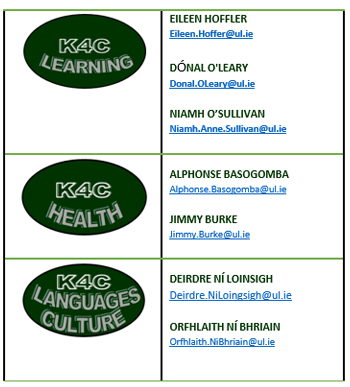
EILEEN HOFFLER
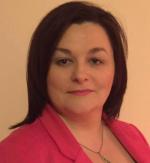 Prior to joining UL, Eileen was CEO of SERVE, a development and volunteering organisation committed to tackling poverty in the majority world. SERVE works in solidarity, service and partnership with marginalised and oppressed communities, empowering them to tackle the root causes of poverty and injustice. Eileen also spent 18 years working with the Society of St Vincent de Paul. She has extensive experience in organisational leadership, policy development, monitoring and evaluating volunteer run projects and is committed to facilitating person centred sustainable change.
Prior to joining UL, Eileen was CEO of SERVE, a development and volunteering organisation committed to tackling poverty in the majority world. SERVE works in solidarity, service and partnership with marginalised and oppressed communities, empowering them to tackle the root causes of poverty and injustice. Eileen also spent 18 years working with the Society of St Vincent de Paul. She has extensive experience in organisational leadership, policy development, monitoring and evaluating volunteer run projects and is committed to facilitating person centred sustainable change.
DÓNAL O’LEARY
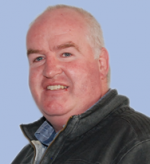 Dónal is the University of Limerick’s Access Campus Co-ordinator, located on the Southside of Limerick city, where he has been in place since 2004. Dónal enjoys strong connections with local community organisations and is the key driver for UL student placements and partnerships between local communities and the School of Allied Health.
Dónal is the University of Limerick’s Access Campus Co-ordinator, located on the Southside of Limerick city, where he has been in place since 2004. Dónal enjoys strong connections with local community organisations and is the key driver for UL student placements and partnerships between local communities and the School of Allied Health.
NIAMH O’SULLIVAN
Niamh has recently joined the Access Office and Meitheal programme as UL’s first Primary School Access Coordinator. She has worked in UL for 15 years supporting research, teaching and central student services. Her focus for the majority of this time has been on securing placements nationally on teacher education and medicine programmes. Her primary areas of interest are in change management, project management and the continuous improvement of systems and processes to support students, academics and community partners.
ALPHONSE BASOGOMBA
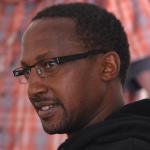 Alphonse is from Burundi and has been involved in creating, leading and collaborating on a variety of community development initiatives in Ennis and the surrounding county. Alphonse is polyglot, speaking three European languages (French, English and Russian) and three African languages (Burundian, Rwandese and Swahili). Since coming to Ireland, Alphonse has completed studies in the field of Community Development, legal studies, Social Inclusion, graduating with a Master of Arts in Peace and Development Studies from the University of Limerick in 2017. He has conducted and participated in many types of research on immigrants and ethnic minorities issues in Ireland co-founding the Clare Intercultural Network in 2005 and the Intercultural and Diversity Education Centre in 2010. He is a former chair of Ennis CDP and has served on different committees with and for disadvantaged people, mainly immigrants and Travellers living in Co. Clare.
Alphonse is from Burundi and has been involved in creating, leading and collaborating on a variety of community development initiatives in Ennis and the surrounding county. Alphonse is polyglot, speaking three European languages (French, English and Russian) and three African languages (Burundian, Rwandese and Swahili). Since coming to Ireland, Alphonse has completed studies in the field of Community Development, legal studies, Social Inclusion, graduating with a Master of Arts in Peace and Development Studies from the University of Limerick in 2017. He has conducted and participated in many types of research on immigrants and ethnic minorities issues in Ireland co-founding the Clare Intercultural Network in 2005 and the Intercultural and Diversity Education Centre in 2010. He is a former chair of Ennis CDP and has served on different committees with and for disadvantaged people, mainly immigrants and Travellers living in Co. Clare.
JIMMY BURKE
 Jimmy is the University of Limerick’s recently appointed Interprofessional Practice Tutor. This is a new and exciting role both nationally and internationally, which focuses on developing interprofessional learning for UL students in community-based settings. Jimmy is dedicated to building academic-community partnerships in emergent areas of health and social care practice within this role. Before taking up this position, Jimmy worked as a physiotherapist for over 9 years, specialising in the area of Paediatric Disability. As a qualified clinician, Jimmy has extensive experience of supporting health needs in acute, community-based and disability settings. Autism Spectrum Disorder is one of Jimmy’s areas of clinical interest. Last year he was awarded funding for his project “Giddy Up!” which provides equine-assisted activity to children with additional needs.
Jimmy is the University of Limerick’s recently appointed Interprofessional Practice Tutor. This is a new and exciting role both nationally and internationally, which focuses on developing interprofessional learning for UL students in community-based settings. Jimmy is dedicated to building academic-community partnerships in emergent areas of health and social care practice within this role. Before taking up this position, Jimmy worked as a physiotherapist for over 9 years, specialising in the area of Paediatric Disability. As a qualified clinician, Jimmy has extensive experience of supporting health needs in acute, community-based and disability settings. Autism Spectrum Disorder is one of Jimmy’s areas of clinical interest. Last year he was awarded funding for his project “Giddy Up!” which provides equine-assisted activity to children with additional needs.
DEIRDRE NÍ LOINSIGH
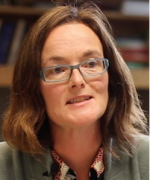 Before Joining UL Deirdre taught Gaeilge at GMIT (Castlebar Campus) and worked with Meitheal Mhaigh Eo Teo, the Area Based Partnership for Co. Mayo, on a rural development initiative in the Erris Gaeltacht. Her research interests focus on: Adult learners; transformative learning; work-based language learning; language advising; ICT in language learning; language policy and organisational change; language learning beyond the classroom; learning spaces; language anxiety; language networks; new speakerness; problem based learning; language teacher education, and the life and work of An Seabhac. She currently coordinates BLÁTHÚ, a PAR project entitled An Rannpháirtíocht Phobail, Líonrú agus Tacaíocht Teanga do Nuachainteoirí na Gaeilge ibpobail Iasmuigh den Ghaeltacht [Public Engagement, Networking and Language Support for New Speakers of Irish in Communities outside of An Ghaeltacht].
Before Joining UL Deirdre taught Gaeilge at GMIT (Castlebar Campus) and worked with Meitheal Mhaigh Eo Teo, the Area Based Partnership for Co. Mayo, on a rural development initiative in the Erris Gaeltacht. Her research interests focus on: Adult learners; transformative learning; work-based language learning; language advising; ICT in language learning; language policy and organisational change; language learning beyond the classroom; learning spaces; language anxiety; language networks; new speakerness; problem based learning; language teacher education, and the life and work of An Seabhac. She currently coordinates BLÁTHÚ, a PAR project entitled An Rannpháirtíocht Phobail, Líonrú agus Tacaíocht Teanga do Nuachainteoirí na Gaeilge ibpobail Iasmuigh den Ghaeltacht [Public Engagement, Networking and Language Support for New Speakers of Irish in Communities outside of An Ghaeltacht].
DR. ORFHLAITH NÍ BHRIAIN
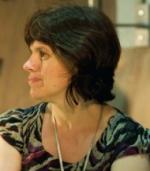 Orfhlaith is an ethno-choreologist and Course Director of the MA in Irish Traditional Dance Performance programme at the Irish World Academy of Music and Dance, University of Limerick, Ireland. As an accomplished performer and teacher of Irish music, song and dance, she delivers workshops and seminars internationally and is a recognised expert in the Irish traditional music and dance world. Her research interests include Arts in Health, Irish Music and Dance studies and Music and Dance Education. She is an active member of the Arts and Health Research Cluster and a director of Dance Ireland. Notable publications include Jigs to Jacobites (2018), The Terminology of Irish Dance, (2008). She has also published several articles on set dancing for Parkinson’s with colleagues in the Department of Allied Health.
Orfhlaith is an ethno-choreologist and Course Director of the MA in Irish Traditional Dance Performance programme at the Irish World Academy of Music and Dance, University of Limerick, Ireland. As an accomplished performer and teacher of Irish music, song and dance, she delivers workshops and seminars internationally and is a recognised expert in the Irish traditional music and dance world. Her research interests include Arts in Health, Irish Music and Dance studies and Music and Dance Education. She is an active member of the Arts and Health Research Cluster and a director of Dance Ireland. Notable publications include Jigs to Jacobites (2018), The Terminology of Irish Dance, (2008). She has also published several articles on set dancing for Parkinson’s with colleagues in the Department of Allied Health.
DR. SARAH HAYES
 The Solid State Pharmaceutical Centre (SSPC) Education and Public Engagement (EPE) programme funded by Science Foundation Ireland plays a key role in communicating the importance and value of science to the wider society in Ireland. The SSPC’s EPE programmes incorporate customised, context based activities for each stage of the Irish primary and post-primary educational systems.
The Solid State Pharmaceutical Centre (SSPC) Education and Public Engagement (EPE) programme funded by Science Foundation Ireland plays a key role in communicating the importance and value of science to the wider society in Ireland. The SSPC’s EPE programmes incorporate customised, context based activities for each stage of the Irish primary and post-primary educational systems.
Additional programmes designed for third/fourth level students, industry, and the general public also play a role in the EPE strategy to promote engagement with SSPC’s research, as well as to create a dialogue among all participants about Science, Technology, Engineering, Mathematics and Medicine (STEMM), particularly in the area of chemistry and pharmaceutical manufacturing. Sarah is dedicated to education, training and outreach and is responsible for managing and delivering SSCP’s Training, Education and Outreach initiatives.
PROJECTS OF THE HUB WITH BRIEF DESCRIPTION
Case studies of locally conducted research/teaching
- Comhrá
- CWELL
- Fleurir
COMHRÁ
Comhrá (conversation) offers a series of short video vignettes featuring community practitioners in conversation with UL staff. The project, which is led by the Knowledge for Change (K4C) mentors in Languages and Culture, Dr Deirdre Ní Loingsigh from the School of English, Irish and Communication, and Dr Orfhlaith Ní Bhriain, from the Irish World Academy, focuses on developing a set of teaching and learning resources for staff and students interested in best practice community engagement.
As if foretelling the move to online teaching that COVID-19 necessitated, the vignette design was intended to provide a more creative narrative approach to teaching and learning, incorporating storyboarding and video-production into bespoke thematic topics concerning com- munity based participatory research (CBPR). Focusing on a variety of themes and key issues in CBPR, including for example: research reciprocity, interculturalism, reflective practice, transformative learning, and use of language, the vignettes will be used as discussion triggers and in flipped learning activities.
Commenting on the initiative, Orfhlaith and Deirdre suggested that this vignette design and knowledge exchange will inform other T&L initiatives, at UL and beyond, where curated conversations, video-production and tailor-made activities, using a theoretically sound pedagog ical framework, are of interest. They noted that the personal accounts and real life experiences of some of the issues that require attention in CBPR are addressed in an authentic way in the Comhrá project and that these resources will be a welcome contribution to UL curricu lum resources.
Materials, as per the UNESCO agenda and K4C principles, are being prepared in both English and Irish. Stage two of the project will involve the creation of a supporting tutor guide. This initiative was awarded FAHSS Teaching and Learning Board funding 2020-21 and is also supported by UL Engage.
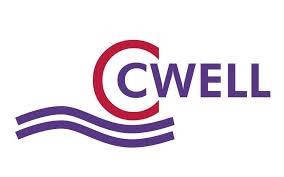
The Community Wellness, Empowerment, Leadership and Life skills (CWELL) diploma is a unique academic programme that has been co-designed with local Limerick communities to address their community-identified needs. The CWELL diploma programme represents a long -term university commitment to supporting both individuals and communities in under-represented parts of Limerick. The course acronym reflects the curriculum content, which is designed to apply to both individual and community needs in terms of: managing physical and mental well-being; empowering individuals and groups to identify and advocate for their needs; and developing the necessary leadership and life skills to address personal and community development objectives in a proactive and strategic manner.
CWELL presents more collaborative way of learning in the community, one where local knowledge is recognized as having a real value. The ambition of the university is to engage with the community, utilizing the store of tacit knowledge and experience that already exists in local communities, and combining this with university supports and expertise.
In the second year of their CWELL diploma, CWELL students are joined by students on the MA Community Research+ programme. Together both cohorts of students work in teams, sup- ported by a network of local partnerships, to co-design and deliver a local projects which ad- dresses an identified need.
Each year students design and delivery projects in their own communities based on the needs they have identified.
For details of CWELL visit https://www.cwell.ie/
Fleurir, French Language Learning as part of the UL Academy for Children
The Access Office in UL is developing an academy for primary school children in areas of Limerick experiencing socio-economic disadvantage and has partnered with Our Lady Queen of Peace in Janesboro as a pilot school. The Access Academy offers a French language programme, co-designed with the school to meet their identified needs. The programme was delivered by School of Modern Languages and Applied Linguistics in UL. COVID-19 restrictions meant that the programme was delivered online accompanied by an activity workbook book to support and track their learning. In addition to language learning the children will also increase their cultural and language awareness and be exposed to the concept of global citizenship.
The objective is to foster closer collaboration and stronger links with communities and to enhance children’s opportunities to access further education. Through a number of collaborative meetings with the school they identified their needs, one of which was the introduction of a modern foreign language to assist the children in the crucial transition to second level. Following as series of discussions with parents and school teachers, the French language was chosen because it is most commonly taught in all of the local secondary schools.
Partners in the project are the Sixth class teachers in Our Lady Queen of Peace National School, Limerick Pupils and Parents, Our Lady Queen of Peace National School, Limerick. School of Modern Languages and Applied Linguistics, UL- Catherine Jeanneau and Amelie Brunet, UL Access Office UL Engage K4C Learning Hub, Niamh Anne O’Sullivan
This project is a joint initiative between the UL Access Office and UL Engage and will be audited by both offices as part of their annual audit procedures. In addition, the project is also part of the UL Knowledge for Change (K4C) initiative. K4C is a UNESCO sponsored initiative to promote promote community-based participatory research and social responsibility in higher education. Through involvement in this project, UL aims to train the next generation of CBPR researchers in Ireland. A project report will be submitted to the UNESCO K4C training consortium (Cohort 6, 2021) as part of the requirements of the Mentor Training Programme (MTP)
CONTACT DETAILS OF THE HUB COORDINATOR
Dr Maura Adshead, maura.adshead@ul.ie

